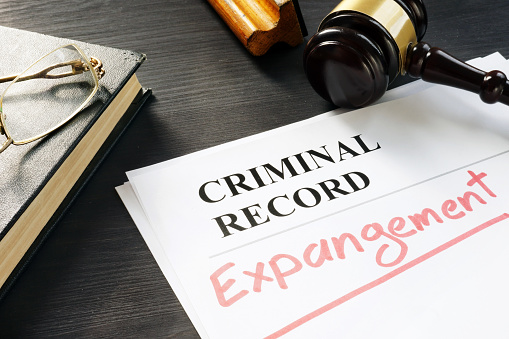
Do you have an arrest on your record? If so, you likely have questions that need answers. The lawyers at The Webb Firm, P.C. answer common questions regarding expungement in Texas.
If you were arrested but weren't charged with a crime, your arrest and court records will still be available to the public. That means employers and landlords can still conduct a background check on you and find out that you've been arrested. This can hurt your chances of getting a job or finding housing.
What kinds of charges are expunged in Texas?
Misdemeanors and some felonies can be expunged in Texas. That's only if you were found innocent and your charges were dropped. The same applies if you were convicted of a crime and later found to be innocent. Serious felonies such as murder, crimes against children, aggravated sexual assault, robbery, aggravated kidnapping, and severe drug charges can't be expunged.
What would prevent me from eligibility for expungement?
The most common reasons why you wouldn't be eligible for expungement include (but are not limited to):
- Being convicted of a crime or pleading guilty of a crime
- Going to jail or prison
- Having a previous crime expunged (in Texas or in another state)
Is my criminal record cleared after an expungement?
An expungement destroys your criminal record, which means it won't show up in a background check. Certain law enforcement agencies will be able to see that you have an expungement on your record, however. This is not to be confused with an order of nondisclosure. An order of nondisclosure simply seals your criminal record from public view. It won't show up in most background checks, but certain agencies can still get access to your criminal record. In addition, you don't have to disclose that you were charged with a crime when applying for a job and law enforcement agencies can't disclose it to private entities.
How does an order of nondisclosure work?
Texas law allows you to petition the court for an order of nondisclosure if you are placed on deferred adjudication community supervision (which is often offered to first-time offenders). Deferred adjudication community supervision is granted to individuals who have been charged with a crime but are not yet found guilty. That's unlike probation, which is granted to people who are found guilty of a crime. If you were charged with a violent or sexually-based crime, you won't qualify for an order of nondisclosure.
How do I apply for an expungement?
To be eligible for expungement:
- The court must have acquitted you of your crime.
- Your criminal charge must have been dismissed due to the expiration of the statute of limitations.
- Your arrest must not have resulted in a criminal charge.
There is also a waiting period for an expungement that you must complete before you can file. This is how long you have to wait from the date of your arrest:
- 180 days for a Class C misdemeanor
- One year for a Class B or Class A misdemeanor
- Three years for a felony
Once you have filed a petition for expungement, you will have to wait roughly 30 days to receive a hearing date. Once you have been granted an expungement, it will take up to 180 days for your criminal records to be destroyed. Forms for expungement and nondisclosure orders can be found here.
Do I need an attorney?
The process of applying for and being granted expungement can be very complex. There is no guarantee that your crime will be expunged, even if you weren't found guilty. That's why it's best to first speak to an experienced Texas criminal defense lawyer to understand your rights.
The attorneys at The Webb Firm, P.C. understand how the expungement process works in Texas. We'll work with you every step of the way to ensure that the process goes as efficiently as possible. To get started, contact or call our Montgomery County law office for a free legal consultation.

